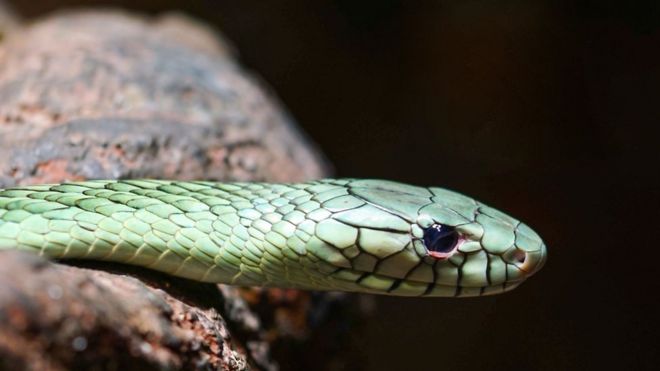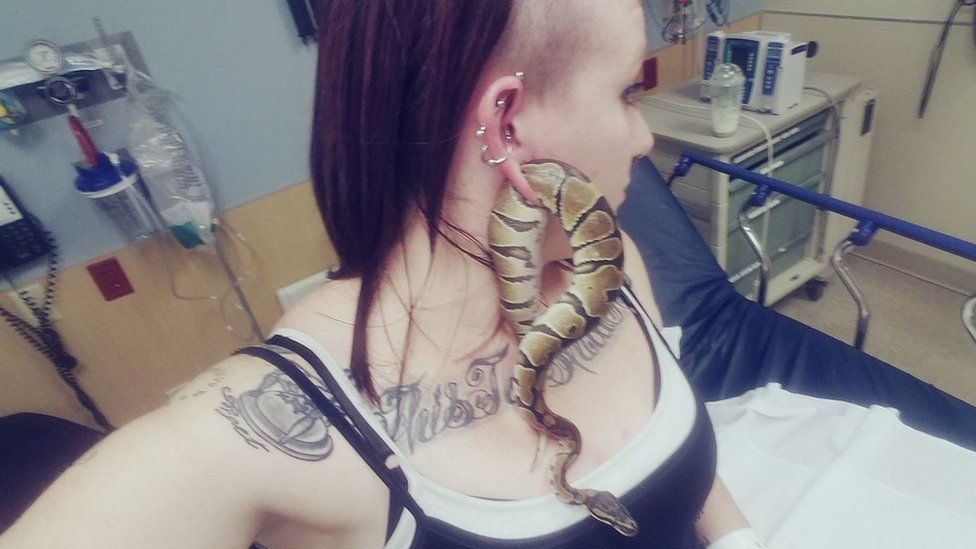Complaint over Scottish SPCA snake death investigated
Share
Image copyrightTHINKSTOCK
Image captionThe snake was thought to be a green mamba
A complaint about the Scottish SPCA putting what was thought to be one of the world's most deadly snakes to sleep is being investigated by police.
The
suspected green mamba was found on a ship that had docked in Aberdeen from west Africa last month.
The snake died after it was placed in a freezer by the animal charity after attempts to rehome it with specialist reptile keepers failed.
The snake was later identified as a harmless green tree snake.
Police Scotland said a complaint was under consideration.
Scottish SPCA Ch Supt Mike Flynn said: "We were called out after a green snake arrived in Aberdeen on a boat from Africa.
"The snake was thought to be a green mamba, one of the deadliest snakes in the world. The snake was taken by police escort to our Aberdeenshire animal rescue and rehoming centre.
"Sadly the snake, which staff genuinely believed to be a green mamba, had to be put to sleep after our attempts to rehome it to specialist reptile keepers were unsuccessful."
'Safety paramount'
He added: "We could not keep the snake in our centre due to severe health and safety concerns, as the closest anti-venom is held in Bedford. Green mambas also require a Dangerous Wild Animal Licence which the society does not have.
"The safety of our staff and the public is paramount and as such the snake was placed in a freezer where it passed away.
"The Scottish SPCA is proud of its policy not put healthy animals to sleep. Animals are only put to sleep on veterinary advice if they are too ill or too aggressive to be rehomed, or where we are legally required to do so.
"The decision to euthanise the snake was not taken lightly. Unfortunately, the snake has since been identified as a harmless green tree snake. This has been an honest mistake on the society's part as we genuinely believed this was an extremely deadly snake."
The western green mamba feeds on small animals and rodents and is mainly found in the coastal tropical rainforests of western Africa.
Experts say its bite can be fatal in as little as 30 minutes






 NOW
NOW